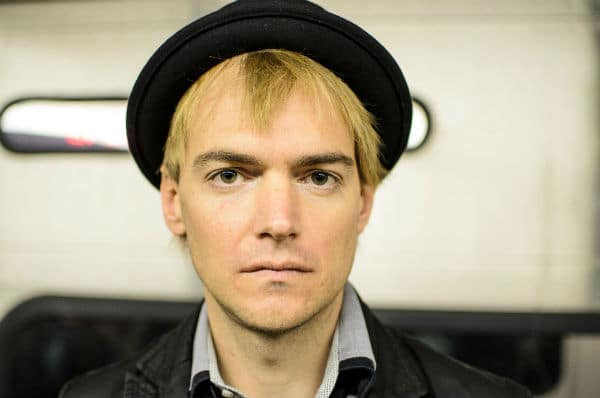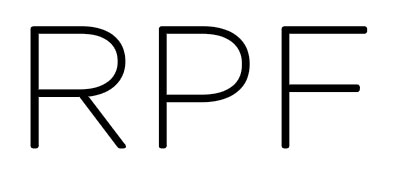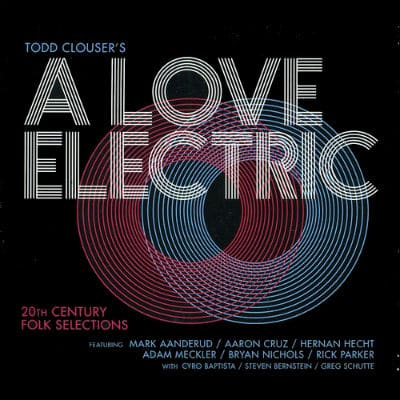While his previous vocal excursions, featured on one of several projects he has self-released, were in a more tempered, spoken vein, Clouser’s vocals on Man With No Country are explosively expressive. Much of the credit for his awakening goes to the album’s renowned producer, drummer, and sonic architect, Anton Fier (Golden Palominos, Lounge Lizards, Feelies, Pere Ubu, and more). Having worked as a producer with singers as varied as Michael Stipe, David Thomas, Jack Bruce, Syd Straw, John Lydon, Matthew Sweet, Lori Carson, and innumerable others, Fier’s guidance and trust was critical establishing Clouser’s confidence.
While defined by the intensity and immediacy of strong musical personalities interacting in real time, the creation of Man With No Country was actually the product a great deal of soul-searching, during which Clouser and Fier constantly asked themselves difficult, probing questions – then sought the answers in their music. Originally, Clouser enlisted Fier to play drums on a marathon 10-hour session, where many of the album’s songs were first recorded. Without rehearsal, the musicians were reading from carefully prepared charts, and Clouser played guitar without singing – which was to be added later.
Once the productive session wound down, the musicians packed up and returned to their respective paths. Not too long afterward, Clouser invited Fier to Mexico to play a few shows. There, Fier enquired about the previous session and Clouser played him some rough mixes. Hearing the songs with vocals for the first time, Fier began to gain an understanding for Clouser’s perspective, and the essence of the songs began to become clear to him. “We were listening,” Clouser recalls, “and Anton said, ‘You know there’s a masterpiece in there, and we don’t have it.’
“I was intrigued by Anton’s honesty,” Clouser continues. “I asked him, right then, ‘How do we get there?” Fier immediately responded that they needed to return to New York, ditch the charts, and strip the songs to their bare essence before carrying on.
The pair did just that, creeping into New York City studios at odd hours and performing the songs live, with vocals, as a guitar and drums duo. Before the sessions, Clouser sheered the songs of inessential components. “I stripped it all away,” he says. “I took Anton’s advice and brought it back to the song. It’s an open, vulnerable record, because that’s what Anton was able to get.” While recording, the two fed off of each other, their spontaneous interaction, drawing from Clouser’s rich improvisational instincts, brought the songs to life. “It became this amazing trade-off in the moment,” Clouser continues, “and I’m an in the moment guy.”
Clouser’s innate improvisational instincts have brought him remarkably far in a short time. Not long after graduating from Berklee College of Music, he decamped the states for Mexico, in the hopes of developing his own artistic persona away from the cynicism that increasingly defines the music business in America. “You see people getting trampled on and torn up by the industry,” Clouser says. “It can get really ugly.” Already technically adept, teaching in the isolated community of Baja put him in touch with his muse, and he performed alongside musicians both locally and abroad that further grew his musicianship – such as trumpeter Bernstein, modern blues maverick Keb Mo, downtown percussionist Cyro Baptista, and his regular trio of drummer Hernán Hecht and electric bassist Aarón Cruz Bravo.
One of Clouser’s early champions was drummer Billy Martin of Medeski Martin & Wood and proprietor of Amulet Records. “I’ve known him since the beginning of Camp Medeski Martin & Wood, where he’s been a regular camper and student,” Martin explains. “I liked him from the beginning – his demeanor, his style. He’s come a long way since then. He’s doing everything I think young musicians should do: Keep touring, keep writing, take the bull by the horns, play with lots of people, and just getting out there. And that’s what he’s doing, full on.”
Man With No Country is Clouser’s most sustained and intimate collaboration so far, and while the subsequent contributions of musicians like Bernstein, Scherr, and Martin filled out the sound considerably, the intensity forged in those initial duo sessions with Fier is still very much the core of the album. “I trusted Anton completely,” Clouser says, looking back. “I respect him and I trusted what he heard in me. He has a way of stripping things down to the truth. There’s no bullshit with him, in music or life. He’s an incredibly straight guy and that’s really refreshing in the music industry. We’re just going for absolute truth on this record…no trickery, no shtick or gimmicks.”
Being pushed out of his comfort zone by Fier has produced a series of striking moments, such as the album’s title track. After hearing the intense backbeat Fier proposed for the song, Clouser set his guitar aside. “I just didn’t want to strum chords on the guitar while he was playing this beat,” Clouser recalls. “So we got this choppy, delayed sound out of a Wurlitzer electric piano. It was live, not manufactured afterward. The song could have been a spoken, mid-tempo folk-rock song, and it became so much more. I love that: No rules – just make it as real as we could.” The track is further enhanced by a winsome brass line from Bernstein, whose wistful, anthemic quality beautifully amplifies the central character’s alienation.
Throughout, Clouser’s confident baritone vocals swing from the intimate, disarming tenderness of “How to Trust a Lover” to the biting urgency and paranoia of “Where’s Her Money From?” His guitar work is similarly vast, encompassing elegantly precise rhythm work to damaged, corrosive leads. “There wasn’t a fear of executing something perfect,” he explains. “We embraced the mystery, the wonder…I wanted to make this the record very much about songs, and allow these songs to be presented. But I didn’t want to shortchange any of the other things I do – like improvising and playing notes you wouldn’t necessarily hear in a rock song. It doesn’t make sense for me to try to rein that in. We had to embrace it all.”
And although the song-derived framework of Man With No Country may come as a surprise to some of Clouser’s followers, he is quick to place it within a distinct lineage that has improvisation and jazz at its core. “I love playing ‘rock’ music with ‘jazz’ musicians,” he concludes. “Bernstein, Tony, Anton, Billy – all these guys have lived in improv circles and have played both free and standardized jazz music, but they still have an adherence to melody and to song form. Consequently, I never feel like that there’s something lacking in the music because harmonically it doesn’t have a lot of dense chords. There’s beauty in the way those guys get it, and the creative music language is very much alive in there.”





